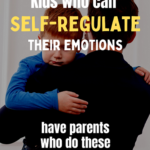Childhood is a key time for learning about the world and acquiring the skills required to communicate properly and empathetically with others. Parents have a vital role in building good connections and growing socially competent children. In this post, we will discuss successful techniques for teaching respect, dignity, and social competency to your kid via example, encouragement, and justice.
Leading by Example
The most effective approach to develop ideals of respect and dignity in children is by modeling the conduct you desire to promote. Every “please” you utter and every helpful hand you give serve as crucial lessons for your youngster. When you display kindness and respect in your relationships, your kid is more likely to follow suit.
Involving Children
Engage your children in everyday duties by asking for their aid and accepting their offers of assistance. This not only boosts their self-esteem but also promotes the concept that collaboration and kindness are fundamental components of human connection. Praise your child’s excellent conduct and underline the great emotions that come from helping others.
Building Confidence
Socially competent youngsters exhibit a high feeling of self-worth and significance. When a youngster feels good about himself, they are more willing to treat others pleasantly and kindly. Encourage your youngster to understand their value and encourage their self-esteem via encouraging words and deeds.
Sharing and Cooperation
Acts of charity are a cornerstone of courteous and dignified conduct. Encourage sharing and collaboration by teaching your kid the significance of taking turns, sharing toys, and collaborating with others. Acknowledge and appreciate their capacity to identify these truths independently.
The Impact of Words
Children realize that words may harm, leading to name-calling, taunting, or exclusion. It is crucial to educate kids the necessity of fair and courteous communication. Explain rules to your kid, stressing that they apply to everyone, including themselves.
Conclusion
Teaching respect, dignity, and social competency is an essential element of parenting. By modeling these behaviors, nurturing self-worth, and encouraging acts of generosity, parents may equip their children with key life skills that will serve them well in creating healthy relationships and navigating the social world.
It’s never too early to begin imparting these principles. You may start by modeling polite conduct from the earliest stages of life. Use such occasions as teaching opportunities. Discuss why their behaviors were upsetting and provide alternate methods to approach similar situations politely. For younger children, simple behaviors like sharing toys or taking turns may help foster a feeling of generosity. Praise their efforts when they display such actions. Engage in dialogues regarding feelings and emotions. Help your kid learn how words may impact others and develop empathy by asking them how they would feel in a similar circumstance.





